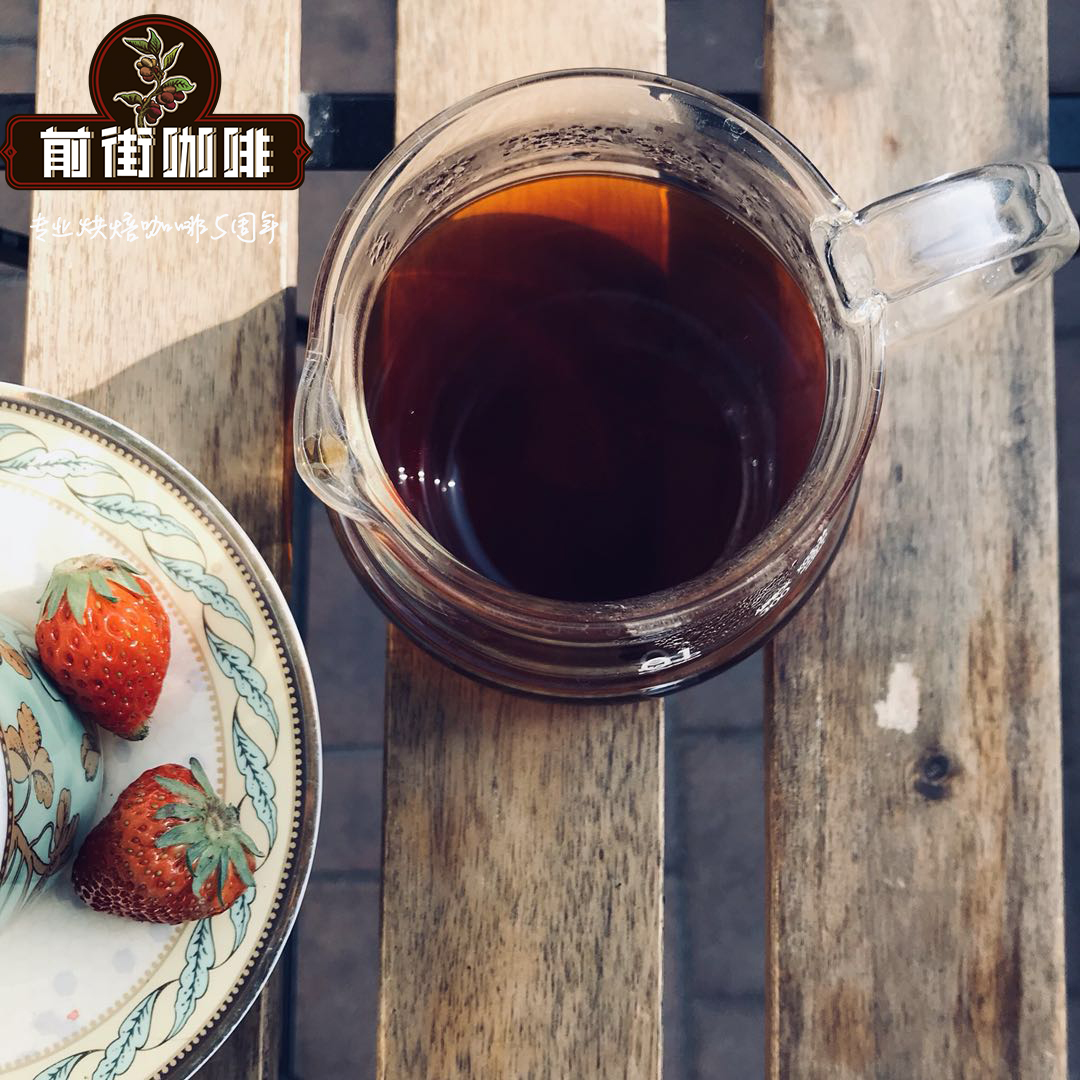How do you drink Kenyan coffee? how is Kenyan coffee graded? How to brew Kenyan coffee

Professional coffee knowledge exchange more coffee bean information please follow the coffee workshop (Wechat official account cafe_style)
Kenyan coffee is most famous for its adorable sour taste. Next, Qianjie Coffee will introduce Kenyan coffee to you!
Africa has always been one of the best coffee producers in the world, and is famous all over the world for its charming acidity and aroma, and Kenya is certainly not absent. Kenya is a big coffee country in East Africa and one of the most important and irreplaceable producers, next to the Republic of Ethiopia, the original place of coffee in the world. Coffee farmers are generally highly educated, studying fine agriculture and growing top coffee. Coffee producers in Kenya are mainly divided into two types, the first type is large estates, and the other is the so-called "small farmers". However, whether they are large coffee farms or small farmers, the coffee beans produced by them have been refined, the vast majority will be transported to the official Kenyan coffee shop for unified grading identification. The coffee bureau will first send samples of the coffee beans to be auctioned to interested buyers for trial, and hold an auction every Tuesday at the Nairobi Coffee Exchange Coffee Exchange in Nairobi, the capital of Kenya. Through a transparent auction mechanism and a dual-system parallel approach of official sales agents and independent sales agents, foreign buyers can also directly negotiate with corresponding producers to buy coffee. There is no need to go through the official auction board, so producers' hard work can be rewarded more fairly and equitably, without being exploited by the brokers in the middle. Because of this, coffee farmers are more willing to try their best to produce high-quality coffee beans in order to sell at a good price.
Kenya has always had a reputation for excellence in quality when it comes to coffee production. This may have something to do with its geographical location, after all, close to the birthplace of coffee beans. Kenya has been one of the leaders of the coffee industry since coffee beans traveled through the mountains from Ethiopia to Kenya. Coffee beans produced in high-source terrain are generally mellow in consistency, excellent in taste and pleasant in acidity. The person with the fragrance will also exude the delicate fragrance of flowers, and the aftertaste is not only lemon berry but also wine.
The main varieties in Kenya are SL28 and SL34. It was cultivated and named by the "Scott Laboratories" laboratory in 1930. According to botanists in SL laboratory, SL28 and SL34 are genetic variants. Among them, SL28 has a mixed pedigree of French missionaries, mocha and Yemeni Tibica. The goal of cultivating SL28 was to mass produce coffee beans with high quality and resistance to diseases and insect pests. Although SL28 did not produce as much as expected, copper and broad bean-shaped beans have great sweetness, balance and complex flavor, as well as significant citrus and black plum characteristics. SL34 is similar to SL28 in flavor, with a heavier, fuller and cleaner finish than SL28, except for the complex acidity and great sweetness of the finish. SL34 has French missionaries, bourbon, and more Tibica ancestry. Dou looks similar to SL28, but is more adaptable to sudden heavy rain. It is these two important varieties that lead us to know the unique Kenyan coffee beans. And you can see all these in the front street coffee!
Qianjie Coffee recommends Kenyan coffee brewing parameters:
V60According 91-92 ℃ / 1 15 / time two minutes
Flavor:
Rich aroma of virgin fruit and sweet sucrose
In recent years, more and more people like to drink coffee, and they also know more and more about the taste, aroma and other aspects of coffee. In the past, we must have heard the older generation always say, "Coffee must not be sour!" "as long as coffee is sour, it is shoddy coffee!" The same kind of words. Of course, looking back from the current point of view, "sour coffee = inferior coffee" has long been an impractical and incorrect concept. On the contrary, more and more coffee fans have begun to prefer coffee with acidity, and even can't do without sour coffee from now on. Women, in particular, have a higher acceptance of acid. Of course, this may also be due to the relationship between time and space, the early coffee refining technology is not as modern, the source is not transparent, perhaps mixed with bad flavor, unpicked beans and roasted into medium-shallow roasting, of course, the bad taste is more likely to be drunk clearly. In recent years, the popularity of boutique coffee has begun to promote the simple taste of black coffee, and more and more attention has been paid to the sour, fragrant, sweet, mellow and other flavors of coffee itself. On the contrary, the word "sour coffee" has become a representative of coffee taste.
The coffee grading system in Kenya is distinguished by AA-Plus (AA+), AA and AB, which refers to the uniformity of the particle size of coffee beans rather than the quality of coffee. High-quality Kenyan coffee beans are commonly grown between 4200 and 6800 feet (about 1300 and 2100 meters) above sea level.
Important Notice :
前街咖啡 FrontStreet Coffee has moved to new addredd:
FrontStreet Coffee Address: 315,Donghua East Road,GuangZhou
Tel:020 38364473
- Prev

How is Kenyan coffee graded? what are the characteristics of Kenyan coffee?
Professional coffee knowledge exchange more coffee bean information please follow the coffee workshop (Wechat official account cafe_style) while the coffee from Kenya has a very remarkable feature: high acidity, with a strong berry flavor. Kenyan coffee is famous for its acidity and enjoys a good reputation for its quality and industry practices. The best local coffee is colorful and full-bodied
- Next

What is Peruvian coffee? What's the difference between ordinary organic Peruvian coffee and high quality Peruvian coffee?
Professional coffee knowledge exchange more coffee bean information please follow the coffee workshop (Wechat official account cafe_style) as a rising star in the coffee industry, Peruvian coffee is gradually opening up its popularity and entering the international market. Peruvian coffee has always been used as one of the stable and mellow mixed beans of comprehensive coffee. Peruvian coffee has a mellow taste and proper acidity.
Related
- Detailed explanation of Jadeite planting Land in Panamanian Jadeite Manor introduction to the grading system of Jadeite competitive bidding, Red bid, Green bid and Rose Summer
- Story of Coffee planting in Brenka region of Costa Rica Stonehenge Manor anaerobic heavy honey treatment of flavor mouth
- What's on the barrel of Blue Mountain Coffee beans?
- Can American coffee also pull flowers? How to use hot American style to pull out a good-looking pattern?
- Can you make a cold extract with coffee beans? What is the right proportion for cold-extracted coffee formula?
- Indonesian PWN Gold Mandrine Coffee Origin Features Flavor How to Chong? Mandolin coffee is American.
- A brief introduction to the flavor characteristics of Brazilian yellow bourbon coffee beans
- What is the effect of different water quality on the flavor of cold-extracted coffee? What kind of water is best for brewing coffee?
- Why do you think of Rose Summer whenever you mention Panamanian coffee?
- Introduction to the characteristics of authentic blue mountain coffee bean producing areas? What is the CIB Coffee Authority in Jamaica?

